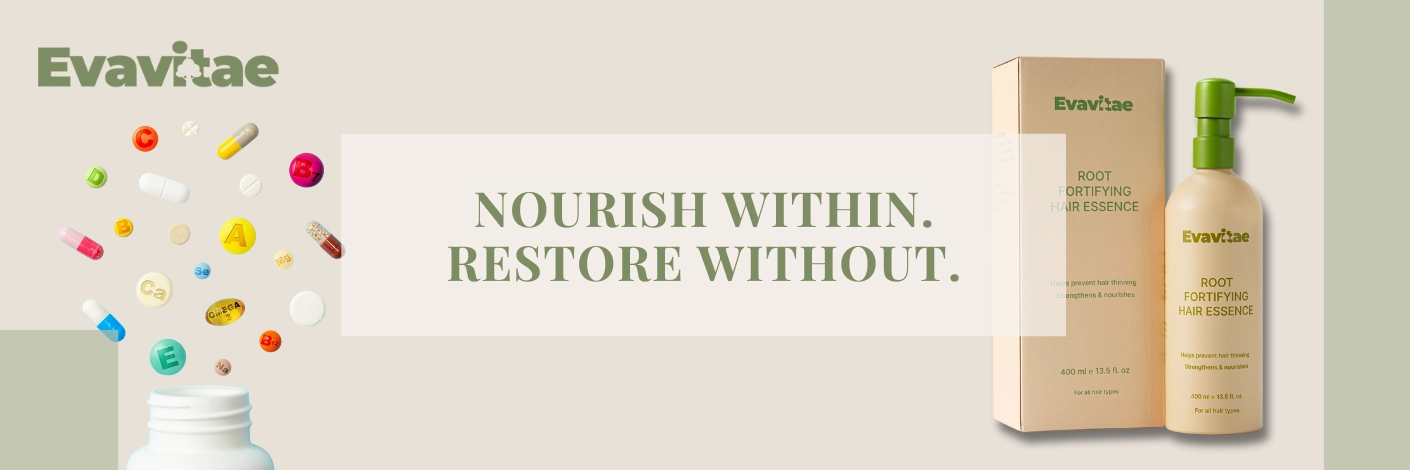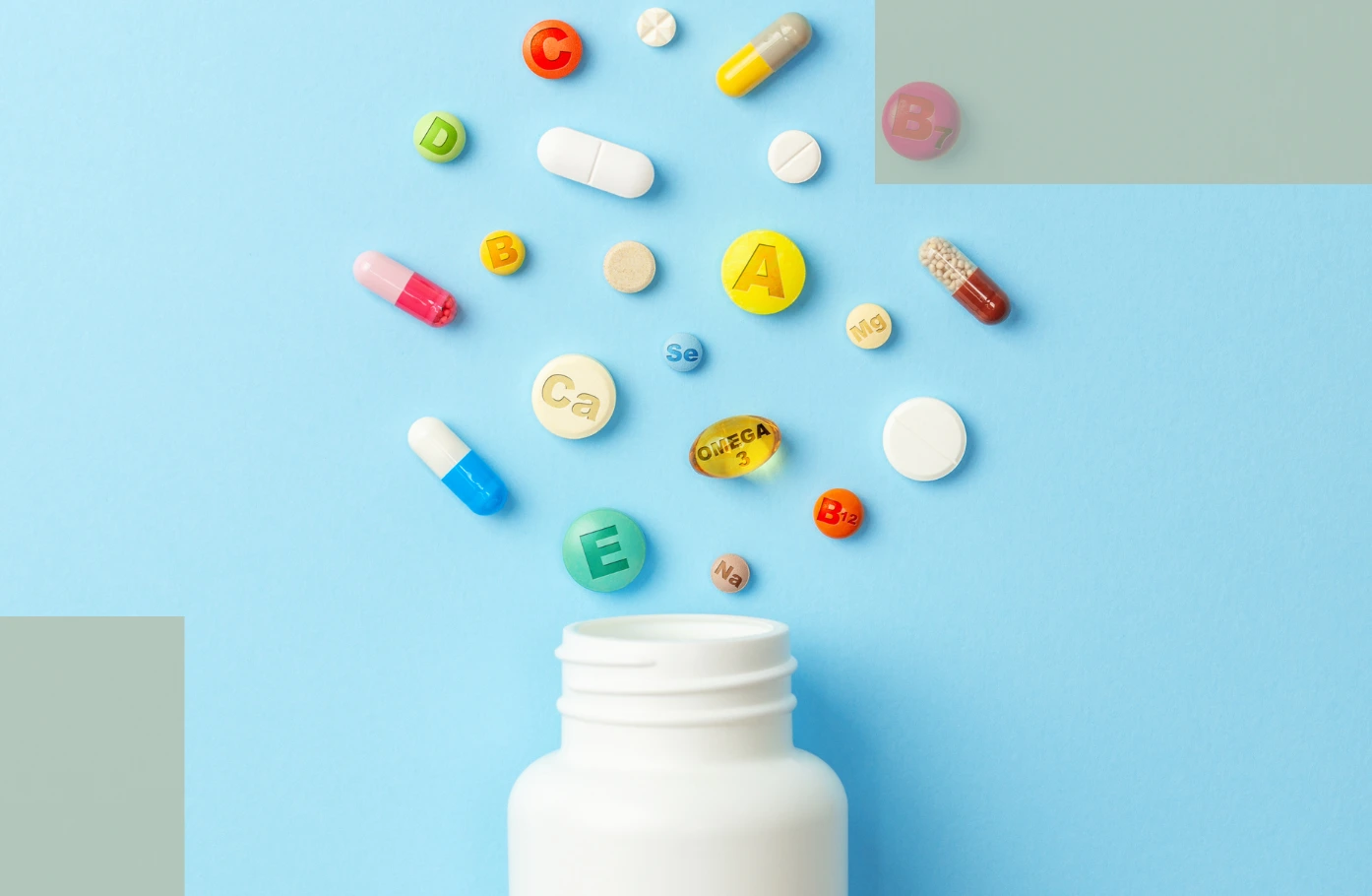After childbirth, many women notice their hair becoming thinner, duller, or shedding in handfuls. While this change is natural and temporary, it can still affect confidence and comfort.
The good news? Hair regrowth after pregnancy is possible — especially when internal and external care work together. Vitamins and minerals play a foundational role in rebuilding strong, healthy follicles, while the right best shampoo for postpartum hair loss helps maintain a balanced scalp environment.
Let’s explore which hair growth vitamins are most beneficial for postpartum women and how to combine them with gentle, restorative hair care.
How Postpartum Hair Loss Connects to Nutrition
During pregnancy, higher estrogen levels keep hair in its growth phase. Once hormone levels drop postpartum, a larger number of hairs enter the resting phase, leading to shedding. This transition, called postpartum telogen effluvium, typically begins two to four months after birth.
However, beyond hormones, nutrient depletion plays a key role. Many mothers experience deficiencies in iron, zinc, vitamin D, and B-complex vitamins — all essential for hair follicle renewal.
According to Mayo Clinic, most women can support recovery through nutrition and gentle self-care rather than aggressive treatments. Addressing deficiencies helps hair return to its natural growth cycle faster.
Essential Hair Growth Vitamins for Postpartum Recovery
1. Biotin (Vitamin B7)
Biotin helps the body convert food into energy and supports the production of keratin — the structural protein that forms your hair and nails.
While severe biotin deficiency is rare, mild insufficiency can occur due to hormonal changes or nutrient depletion after pregnancy. Supplementation may improve hair strength and elasticity for those who are deficient.
Clinical reviews suggest that biotin supplementation can benefit individuals with brittle hair or nails, but results are limited without confirmed deficiency. (Medical News Today)
2. Vitamin D
Vitamin D helps activate hair follicles and promotes the creation of new strands. Deficiency can lead to increased shedding and slower regrowth. Spending a few minutes in sunlight and eating fortified foods can help maintain optimal levels.
Fish oil, mushrooms, and egg yolks are natural dietary sources of vitamin D.
3. Iron
Iron is crucial for oxygen transport to the scalp and follicles. Postpartum iron deficiency (often caused by blood loss during childbirth) is a common reason for ongoing hair thinning.
If you experience fatigue, pale skin, or dizziness alongside hair loss, iron levels should be checked by a physician.
Combining iron-rich foods like lean meats and spinach with Vitamin C–rich fruits improves absorption naturally.
4. Zinc
Zinc supports cell repair and helps balance scalp oil production. In postpartum women, zinc deficiency may appear as slow regrowth or brittle, shedding hair.
However, excessive zinc intake can worsen hair loss, so moderation is essential. A diet including nuts, seeds, and legumes generally provides enough.
5. Vitamin B12 and Folate
These nutrients work together to form red blood cells and carry oxygen to hair roots. They are particularly important for vegetarians or those with low animal-protein intake.
6. Protein and Collagen
Hair is composed primarily of keratin — a protein. Low protein intake can make new strands weaker. Collagen, meanwhile, provides the amino acids proline and glycine, which strengthen follicles and improve elasticity.
Pairing adequate protein with vitamin C–rich foods enhances collagen production and structural integrity.
The Inside-Outside Balance
Vitamins nourish your hair from within, but shampoo plays an equally important role in maintaining a healthy environment from the outside.
The scalp is the soil of your hair — and even with perfect nutrition, follicles can’t thrive in a stressed or irritated scalp environment.
That’s why a gentle, restorative cleanser such as the
is ideal for postpartum care. It combines botanical oils, amino acids, and mild surfactants that cleanse without stripping natural oils, keeping the scalp balanced and calm.
When your body receives nutrients internally and your scalp is treated externally, follicles re-enter the growth phase more efficiently.
Signs You Might Need Vitamin Support
- Persistent hair shedding beyond 9 months postpartum
- Brittle nails and dry skin
- Fatigue, low mood, or dizziness
- Slow hair regrowth even after stress levels improve
If you notice these signs, it’s best to consult a healthcare provider for lab tests (iron, ferritin, vitamin D, B12, and thyroid hormones). Treating underlying imbalances leads to visible improvement within weeks.
For women recovering from childbirth, it’s also worth exploring how prenatal vitamins can influence postpartum hair health—and why pairing them with external care helps restore balance more effectively.
Building a Postpartum Hair Recovery Plan
Step | Internal Care | External Care |
Step 1: Replenish Nutrients | Focus on balanced meals, hydration, and multivitamins containing iron, zinc, and B-complex | Begin using gentle, sulfate-free shampoo formulated for postpartum recovery |
Step 2: Support Follicle Renewal | Add collagen or biotin supplements if recommended by your doctor | Massage scalp with fingertips or a soft brush 3–5 minutes daily |
Step 3: Maintain Hormonal Balance | Manage stress, prioritize rest, and regulate sleep cycles | Continue consistent shampoo routine and consider adding lightweight serums |
Step 4: Track Progress | Take monthly photos to monitor regrowth | Stay patient — hair regrowth is a gradual, natural process |
Most mothers start seeing baby hairs along the hairline within 8–12 weeks once internal deficiencies are addressed.
If you’re exploring different approaches to hair recovery, you might also find this comparison helpful — it breaks down how Evavitae differs from Nature’s Bounty and what that means for long-term hair health.
Choosing the Best Shampoo for Postpartum Hair Loss
When selecting your hair care, keep the following in mind:
- Look for biotin-infused, fragrance-free formulas
- Avoid harsh chemicals (SLS, parabens, dyes)
- Prioritize botanical oils such as avocado or jojoba for moisture
- Select lightweight conditioners that won’t flatten fine hair
- Choose brands with transparent ingredient science
Evavitae’s hair recovery range focuses on gentle, nutrient-enriched formulations that complement internal vitamin care.
To learn more about the science behind each natural ingredient, visit
Ingredients Science.
Beyond Supplements: Lifestyle Factors That Matter
Vitamins are powerful, but they’re not magic. Sustainable hair recovery also depends on sleep, hydration, and stress reduction.
Cortisol, the stress hormone, can suppress follicle activity and increase shedding. Gentle yoga, mindful breathing, or 10 minutes of outdoor walking can help regulate stress and improve circulation to the scalp.
Regular scalp care — cleansing, massaging, and avoiding excessive heat — works synergistically with nutrition for long-term resilience.
While vitamins play a key role in recovery, your topical routine matters too. Learn how using a complete hair care system compares to relying on a single product.
Conclusion: Rebuild from Within, Restore on the Surface
Postpartum hair loss is not a sign of permanent damage — it’s your body recalibrating. With the right nutrients, your follicles can recover their rhythm.
The combination of vitamin-rich nourishment and a gentle, restorative shampoo empowers your body to rebuild stronger, healthier strands.
Support your hair’s natural growth with gentle, science-backed care — explore the Evavitae Root Fortifying Hair Essence.
Looking to continue your journey toward stronger, fuller hair? Discover more tips in our Hair Growth Hub.
Discover what really helps after childbirth in our Postpartum Hair Recovery Guide.
Evavitae products are now available exclusively at www.evavitae.com.





Add comment
You must be logged in to post a comment.